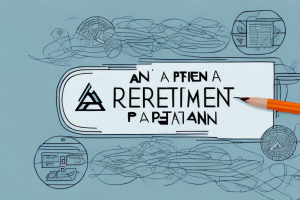Retirement is a milestone that many individuals eagerly look forward to. After years of hard work and dedication, the opportunity to relax, pursue hobbies, and spend time with loved ones is highly anticipated. However, one question often weighs heavily on the minds of soon-to-be retirees: how far does $1 million dollars go in retirement?
Understanding the financial landscape of retirement
Before diving into the specifics of a $1 million dollar retirement, it is crucial to have a solid understanding of the financial landscape retirees face. Retirement planning requires careful consideration of various factors, including inflation, healthcare costs, tax implications, and investment strategies. It is essential to recognize that everyone’s financial situation is unique, and what may work for one person may not work for another.
One important aspect to consider when planning for retirement is the impact of inflation. Over time, the cost of living tends to increase, which means that the purchasing power of your retirement savings may decrease. It is important to factor in inflation when determining how much money you will need to save for retirement.
Another key consideration is healthcare costs. As people age, healthcare expenses tend to rise. It is important to budget for medical expenses, including insurance premiums, prescription medications, and potential long-term care needs. Understanding the potential costs associated with healthcare can help you plan and save accordingly.
The importance of saving for retirement
One of the key elements to achieving a comfortable retirement is saving diligently over the years. The earlier one starts saving, the more time their funds have to grow through the power of compounding. Saving for retirement requires discipline, budgeting, and a long-term perspective. By prioritizing retirement savings, individuals create a financial safety net that contributes to their overall peace of mind when retiring.
Furthermore, saving for retirement allows individuals to maintain their desired lifestyle and independence during their golden years. Without adequate savings, retirees may be forced to rely solely on government benefits or family support, which can limit their choices and freedom. By saving for retirement, individuals can have the financial means to pursue their passions, travel, and enjoy a comfortable standard of living without financial stress.
Breaking down the $1 million dollar benchmark
While $1 million dollars seems like a substantial sum, it is essential to break down this benchmark to understand its implications in retirement. Factors such as life expectancy, desired lifestyle, geographical location, and investment strategies play a vital role in determining how far $1 million dollars can stretch. It is crucial to consider individual circumstances and financial goals when evaluating the sufficiency of a $1 million dollar retirement nest egg.
One factor to consider when evaluating the sufficiency of a $1 million dollar retirement nest egg is life expectancy. With advancements in healthcare and increasing life expectancies, individuals may need to plan for a longer retirement period. This means that $1 million dollars may need to last for 30 years or more, depending on the individual’s age and health. It is important to factor in potential medical expenses and long-term care costs when determining if $1 million dollars is enough for retirement.
Another important consideration is the desired lifestyle in retirement. Some individuals may have modest expectations and are comfortable living a frugal lifestyle, while others may have more extravagant plans. The amount of money needed to support a desired lifestyle can vary greatly. It is crucial to carefully assess one’s spending habits, hobbies, travel plans, and other lifestyle choices to determine if $1 million dollars can adequately support those goals.
How age affects the longevity of your retirement savings
The age at which one retires can significantly impact the longevity of their retirement savings. Retiring early may mean facing a longer retirement period, requiring more funds to sustain a comfortable lifestyle. On the other hand, working longer allows individuals to continue contributing to their retirement savings and delay the start of withdrawals. Understanding the relationship between age and retirement savings is vital for planning the financial aspects of retirement.
Exploring different retirement lifestyles on a $1 million budget
Retirement lifestyles can vary greatly, ranging from modest living to extravagant globetrotting. How far $1 million dollars goes in retirement largely depends on the retirement lifestyle chosen. Prioritizing needs versus wants, making informed decisions about housing, transportation, and leisure activities, and overall financial prudence play a crucial role in determining the sustainability of a retirement lifestyle.
Debunking common myths about retiring with $1 million dollars
There are several misconceptions surrounding retirement with $1 million dollars. While it is a considerable sum, it may not be a one-size-fits-all solution. It is important to debunk myths such as “retirees will never run out of money” or “a $1 million dollar retirement guarantees a luxurious lifestyle.” By understanding the facts and dispelling myths, individuals can make informed decisions about their retirement plans.
Strategies for stretching your retirement savings further
Retirees who wish to make their $1 million dollars last longer can incorporate various strategies into their financial planning. These strategies may include downsizing or relocating to a more cost-effective area, considering part-time work or freelance opportunities, minimizing discretionary spending, and exploring investment options that provide consistent income. Implementing these strategies can help retirees maximize their retirement savings and extend their financial security.
The impact of inflation on your retirement nest egg
Inflation is a critical factor to consider when planning for retirement. Over time, the purchasing power of money erodes due to inflation. This means that $1 million dollars today may not have the same value in the future. To combat the impact of inflation, retirees should consider investment options that offer potential growth above the rate of inflation. Understanding and accounting for inflation is crucial for ensuring a comfortable retirement lifestyle.
Planning for healthcare costs in retirement with $1 million dollars
Healthcare costs can be one of the most significant expenses in retirement. It is essential to plan for medical expenses, including insurance premiums, deductibles, copayments, and potential long-term care needs. Allocating a portion of the $1 million dollars specifically for healthcare costs and exploring healthcare savings accounts can help retirees manage these expenses and maintain financial stability throughout retirement.
Maximizing Social Security benefits with a $1 million dollar portfolio
Social Security benefits form a significant part of many retirees’ income. Understanding how to maximize Social Security benefits with a $1 million dollar retirement portfolio is crucial. Strategies such as delaying benefits, coordinating spousal benefits, and optimizing claiming tactics can potentially enhance Social Security income. Retirees should carefully assess their eligibility and explore all available options to maximize their Social Security benefits.
Investing strategies for growing and protecting your retirement savings
Effective investing strategies can significantly impact the growth and protection of retirement savings. Diversification, asset allocation, and risk management play important roles in investing for retirement. Retirees should consider working with a financial advisor to develop an investment strategy that aligns with their risk tolerance and long-term financial goals. A well-executed investment plan can help grow and protect a $1 million dollar retirement nest egg.
Balancing risk and reward in your investment portfolio during retirement
Retirees face a unique challenge when it comes to balancing risk and reward in their investment portfolios. While growth is still important, protecting principal becomes a higher priority. A balanced and diversified portfolio that incorporates a mix of equities, bonds, and cash can help manage risk while aiming for reasonable returns. Retirees should regularly review and adjust their investment portfolios to maintain an appropriate balance between risk and reward.
Navigating the tax implications of withdrawing from a $1 million dollar nest egg
Withdrawals from a retirement nest egg may have tax implications that should be carefully considered. Different account types, such as traditional IRAs, Roth IRAs, and 401(k)s, have varying tax treatments. Coordinating withdrawal strategies with other sources of income and minimizing taxable events can help optimize the tax efficiency of retirement withdrawals. It is advisable for retirees to consult with a tax professional to ensure they understand and navigate the tax implications effectively.
Exploring alternative ways to supplement your retirement income with $1 million dollars
In certain situations, individuals may need to explore alternative ways to supplement their retirement income beyond their $1 million dollars. This can include part-time work, leveraging skills and hobbies for additional income, or exploring entrepreneurial opportunities. By diversifying income sources, retirees can enhance their financial stability and potentially stretch their retirement savings further.
Tips for adjusting your spending habits in retirement to make your money last
Retirement often requires adjusting spending habits to ensure that money lasts throughout the retirement journey. This may involve creating a realistic budget, distinguishing between needs and wants, minimizing debt, and being mindful of discretionary expenses. By adopting frugal yet fulfilling spending habits, retirees can make their $1 million dollars go further and enjoy a financially secure retirement.
Considering the impact of unexpected expenses on a $1 million dollar retirement fund
Life is filled with unexpected events, and retirees must be prepared for unforeseen expenses. Whether it’s a major medical event or a sudden home repair, unexpected expenses can quickly deplete retirement savings. Building an emergency fund and having adequate insurance coverage can provide a financial safety net, ensuring that unexpected expenses do not derail a $1 million dollar retirement fund.
Evaluating the pros and cons of downsizing or relocating in retirement
Downsizing or relocating in retirement can have both pros and cons. While it may free up home equity and reduce living expenses, it can also involve a significant adjustment in lifestyle and leaving behind familiar surroundings. Retirees should carefully evaluate their personal circumstances, desired lifestyle, and financial goals before making the decision to downsize or relocate. Weighing the pros and cons ensures a well-informed choice.
The psychological aspects of retiring with $1 million dollars
The psychological aspects of retiring with $1 million dollars should not be overlooked. Retirement is not just about finances; it also involves a significant shift in daily routine, identity, and social connections. Retirees may experience a range of emotions, from excitement and freedom to anxiety and uncertainty. Seeking support from family, friends, or professional counselors can help navigate the psychological aspects of retiring with a $1 million dollar nest egg.
Seeking professional advice when planning for retirement on a $1 million budget
Given the complexities and nuances involved in retirement planning, seeking professional advice is often a wise decision. Experts in the field can provide personalized guidance tailored to individual financial needs, goals, and risk tolerances. Professional advice helps retirees make informed decisions, optimize their retirement savings, and gain confidence in their financial future.
In conclusion, the question of how far $1 million dollars goes in retirement is subjective and dependent on various factors. By understanding the financial landscape of retirement, saving diligently, and adopting effective financial strategies, individuals can make their retirement funds last longer. Planning for healthcare costs, maximizing Social Security benefits, and considering investment options are critical steps in ensuring a financially secure retirement. Ready to embark on your retirement journey armed with knowledge and preparedness, retiring with $1 million dollars can provide a solid foundation for a fulfilling and comfortable retirement.



